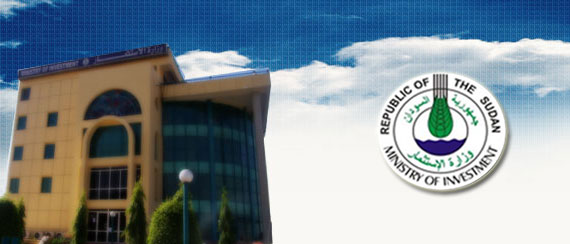|
|
|
|
|
|
|
|
|
 |
||
|
|
|
|
|
|
|
|
Investment opportunities in the infrastructure and service facilities are numerous and include railways, roads, bridges and tunnels, internal water ways, civil aviation, air transport, seaports, shipping, and land transport (trucks and buses). Opportunities also include communication, educational services, health services, and various others. Communication: Sudan is characterized by having one of the most contemporary communication networks in the world today. The network is run by the Sudanese Telecommunications Company (SUDATEL). It presents modern telephone services inside and outside Sudan and internet and fax services as well as very modern technologies. There are also normal and express mail services to all parts of the world. Many national and international companies work in this field. Electricity: Electrical energy is estimated at 875 megawatts in the national grid as well as an amount generated outside the national grid. The Hamadab Dam projected which is being constructed on the River Nile is considered to be the largest hydro electric project in Sudan. It will be completed by 2009 with a production capacity of 1200 megawatts of electricity. Water resources: Fresh water is available in the majority of urban areas for reasonable fees. The construction and real estate sector: The private sector plays an active role in real estate and construction sectors which contributed 65 million dinars to the GDP presenting a growth rate of 3.5%. This sector is supervised by the ministries of engineering affairs in Sudanís different states, as they issue the necessary permits and licenses for operating in this sector. - Renting apartment costs 50000 dinars per month for normal apartments to 200,000 dinars per month for first class luxury apartments. 2 floor houses vary in rent from 200,000 dinars per month to 600,000 per month. As for renting an office in the centre of Khartoum, the costs range from 7$US to 8US$ per square meter. This sector is considered very promising to investors. The services sector: Banks: The Central Bank supervises the banking sector. The number of bank is approximately 26 commercial banks. Each bank has branches dispersed throughout the country. Insurance and reinsurance: There are 13 insurance companies among which one practices reinsurance. The insurance companies provide all forms of insurance (fire, theft, industrial dangers, and insurance of motor vehicles, ships and planes) and all insurance services. Tourism and hotels: The ministry of tourism supervises the practice in this sector. In Khartoum there exist a large number of hotels of various standards (3, 4 and 5 star) and the cost of a single room in a five star hotel ranges from 190 to 270 US$ per night whereas the cost of presidential sweet is 750 US$ and a small sweet costs 450 US$ per night.. The cost of a 4 star hotel room is 150 to 170 US$ per night. The cost of a 3 star hotel room ranges from 30 to 60 US$ per night. Car leasing: In Khartoum state, there are more than 11 car leasing companies and a very large number of taxis and passenger buses. The cost of renting a car ranges from 12,000 dinars per day for small cars to 45,000 dinars per day for luxurious cars. Tourism: Sudan enjoys a strategic position on the banks of the Nile and the Red Sea areas in the east and the Jabbal Marrra area in west Sudan. This is as well as attractive tourist areas all over Sudan. An example would be El-Dinder Wildlife Park which homes different species of wildlife, historic sites in the north, and attractive tourist sites in south and east Sudan. Khartoum International Airport: Khartoum International Airport is characterized by its location in the heart of Khartoum. It is constantly adjusted and modernized in order to provide passengers with the necessary means for comfort. There are constant flights by most major airlines tying Sudan to other countries. In the airport there exists a complete banking service, car rental services, and shopping centers which provide a chance for traveler to purchase all their different needs inside the airport. There are also air cargo services which work in an effective way to transport goods to and from Sudan. The cargo services are presented by large regional and international airlines. Port Sudan Seaport: Port Sudan sea port is lies on the coast of the Red Sea, 1232 Km away from Khartoum if traveling through the city of Wad Medani and 800 Km away if traveling through the city of Atbara. Port Sudan is considered the major seaport in Sudan and it oversees the export an import of operations and international trade. It is also the inlet for development equipment and good on their way into Sudan or transiting to neighboring countries. In Port Sudan city there is a large number of customs clearance companies presenting services to companies and businessmen. Suakin Port: Suakin Seaport is located in the city of Suakin on the Red Sea coast. This port was modernized and is now operating in passenger transport (pilgrim to the Kingdom of Saudi Arabia) and handling of freight. Bashair Sea Port: This port exists on the Red Sea coast south of Port Sudan. It is a modern seaport handling the export of Sudanese petroleum.
|
|
About Ministry | About Sudan | Investment In Sudan | Investment Services |
|
© 2006 Ministry of Investment. All Rights Reserved |